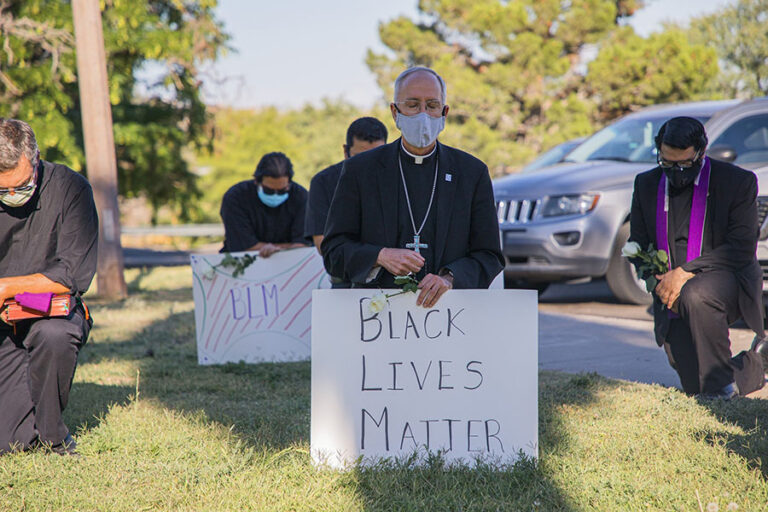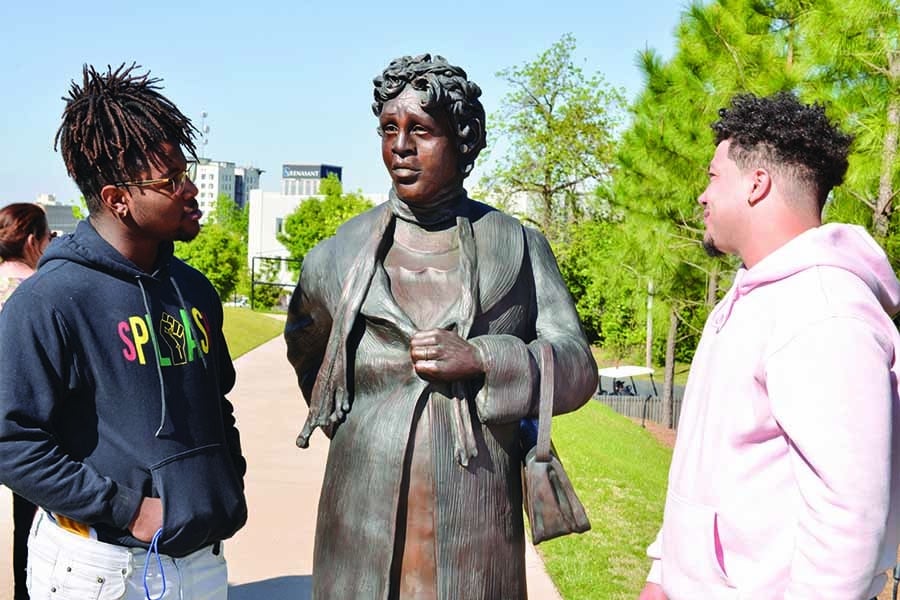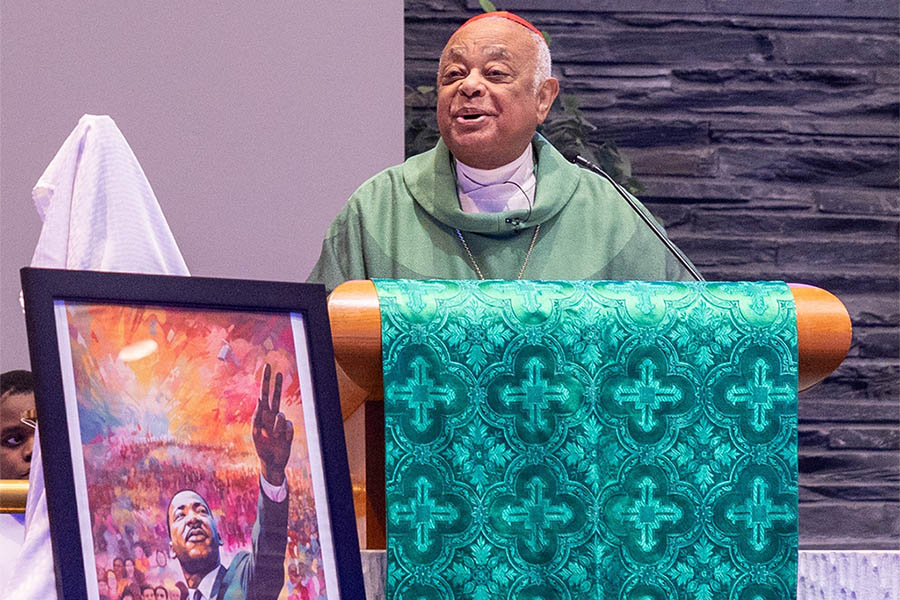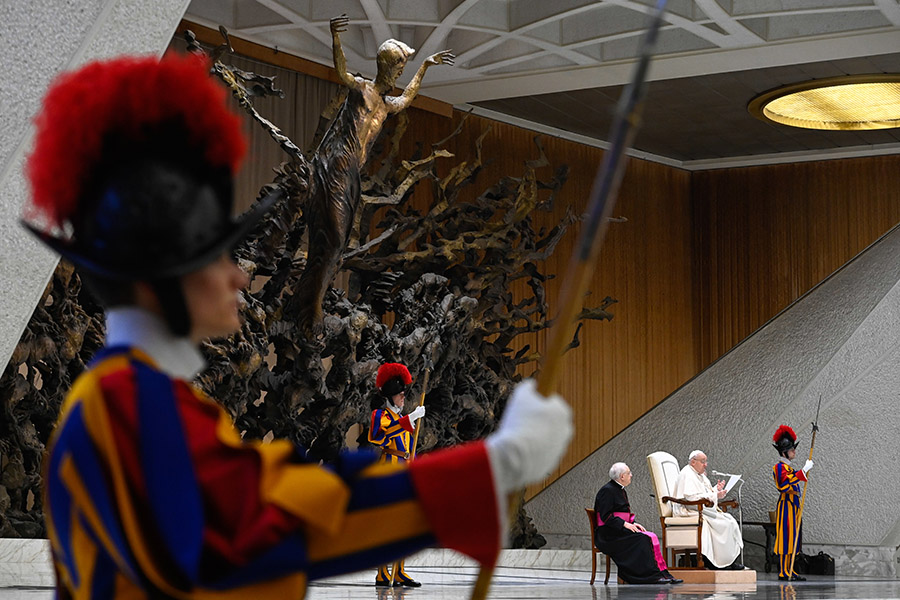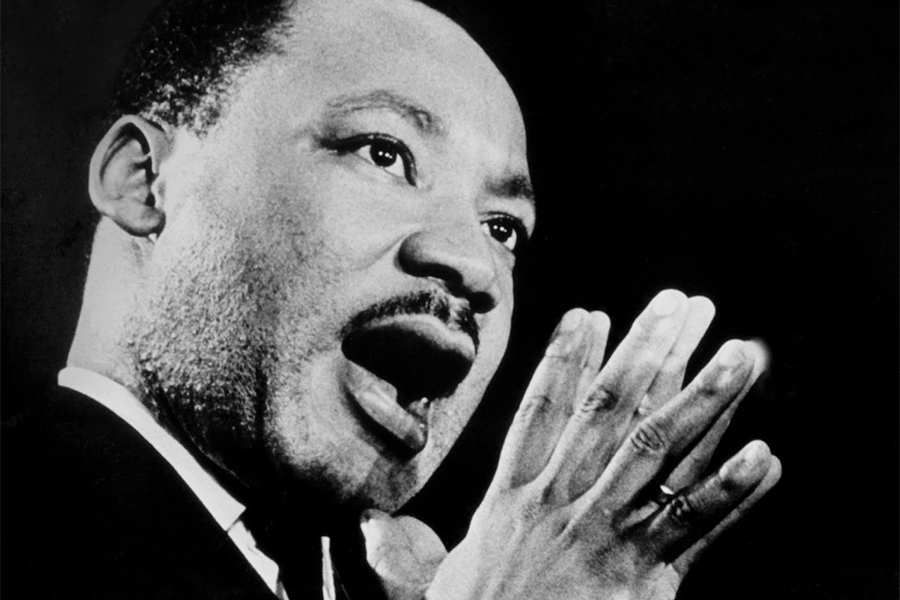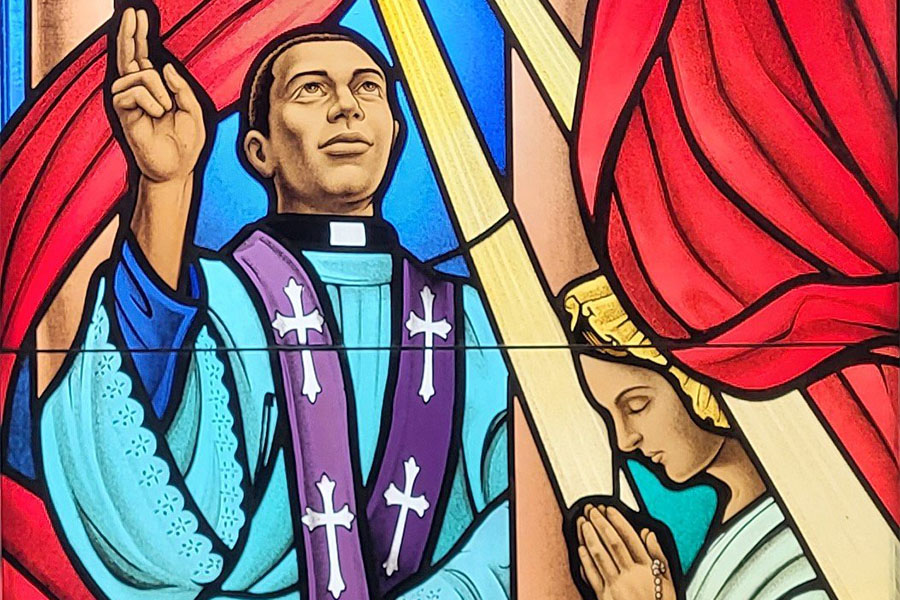WASHINGTON (CNS) — A white woman stood in a mixed-race crowd of protesters on the National Mall in Washington Aug. 28, 2020, carrying a sign that read: “If you look like me, you have white power and white privilege. What will you do with it?”
This was a few months after the death of George Floyd sparked protests throughout the United States calling for racial justice.
An unarmed Black man, Floyd died after a Minneapolis police officer pinned him to the ground with a knee on his neck.
Although the 2020 protests addressing racial disparity followed more than a century of civil liberty struggles in the U.S., more white Americans have been among the crowds of demonstrators in the more recent movement demanding racial equality than in the past, something many Catholic leaders believe is key.
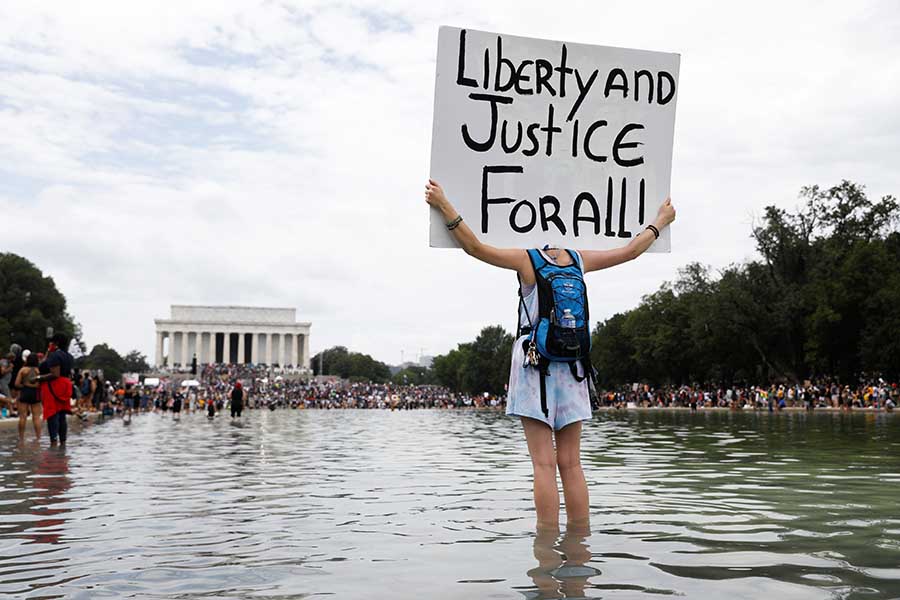
Sister Marcia Hall, vocational director for the Oblate Sister of Providence, the first congregation of Black women religious in the United States, sees the involvement of more white Americans in racial justice efforts as a sign of hope but she also laments that it took something so horrific to push this response.
“It’s tragic that it took someone kneeling on someone’s neck, squeezing the life out of him, and people to be able to see that over and over again if they chose, to understand, ‘Whoa, wait a minute, this is not right,'” Sister Marcia told Catholic News Service during an interview at the Oblate’s motherhouse just outside of Baltimore.
White involvement in addressing racial disparity also is seen as essential if there is going to be real progress in rooting out systemic racism in this country, said Bishop John E. Stowe of Lexington, Ky.
“We all participate in a racist society,” he told CNS. “Rather than feel guilt about ‘my personal role’ or worse, say ‘I don’t have any part in that,'” he advises people to “look at the facts, look at history and make sure we’re listening to voices that we haven’t listened to before.”
“It sounds simple, and I don’t think it’s got to be terribly complicated,” he said but also noted there is another part to it, emphasizing: “We don’t do a good job in the United States of teaching history or learning from our history. We don’t do much lament. We don’t do much public repentance for things.”
In 2018, the U.S. bishops issued a pastoral letter against racism called, “Open Wide Our Hearts: The Enduring Call to Love.” The document encouraged U.S. bishops to conduct listening sessions in their dioceses to better understand how racism impacts life in the church and all of society.
Pope Francis also called for listening sessions in individual dioceses worldwide as the Vatican prepares for the Synod on Synodality in 2023.
In those sessions, many U.S. Catholics talked about a need for the inclusion of marginalized groups, among them, people of color, which was an important point for white Americans to hear, said Bishop Daniel E. Flores of Brownsville, Texas.
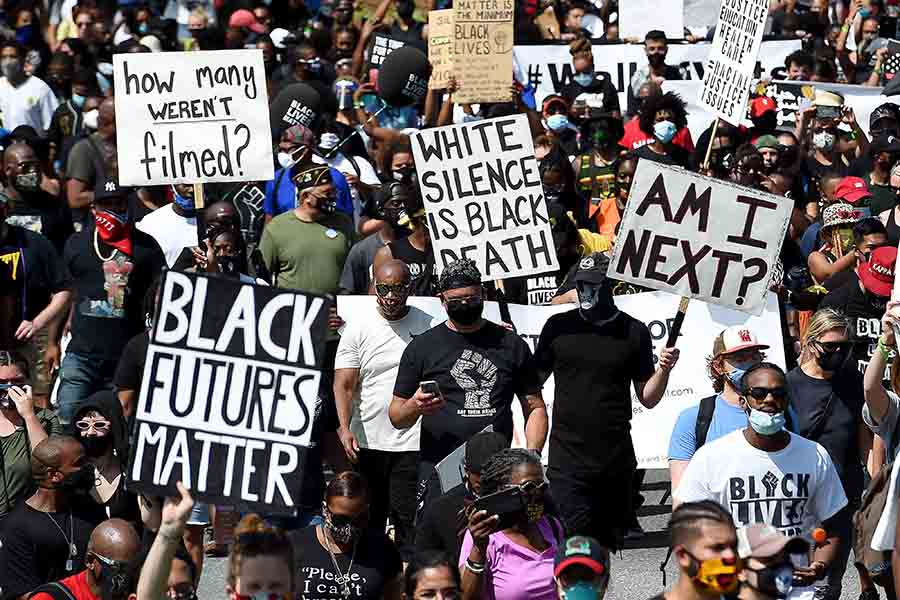
The bishop, chairman of the bishops’ Committee on Doctrine, believes local parish listening sessions can help diffuse white defensiveness and bring more acknowledgment of systemic racism, often seen as a first step in racial healing.
He said the idea behind these sessions is to provide a context where those who have experienced racism can be heard by a local community “which may be predominantly not African American or not another ethic or community that has experienced racism in a very dramatic way.”
Bishop Flores, who reported to the bishops this fall about the synod process in the U.S., said the synodal style the pope keeps talking about involves hearing others without interrupting them.
In other words: “Let a person say what their experience has been, and maybe (what) the experience of their parents and grandparents was, and what their children are experiencing. Let them speak and hear it and don’t feel the need to immediately comment on it or to judge it. Just let it sink in.”
“You’ve got to let people talk and you’ve got to hear it as something that’s human and real,” he said. “In a certain way, ask for a certain grace and to be moved by it. Otherwise, you kind of block it off and you just kind of dismiss it.”
Although listening is a good first step, advocates insist it isn’t the final one.
Black activists also are looking for white involvement in educating the public about systemic racism so people understand how it negatively impacts both people of color and white Americans. Many have expressed frustration that it seems to fall on them to explain racism to white people and to carry the message of promoting racial equality.
“The onus is placed back onto us to, not just justify our existence, but also to give white people solutions to be less racist,” said Olga Marina Segura, a Black Catholic journalist and author of the book “Birth of a Movement: Black Lives Matter and the Catholic Church.”
“It’s very, very draining,” Segura said. “I would love to be able to just … write a story that has nothing to do with anything about my existence. I just want to be able to think about things outside of systemic oppression, but I can’t, right, because it’s so ingrained into my life.”
As exhausting as leading the charge for social justice can be for people of color, it’s also a weight they still must carry if there is going to be significant progress, said Robin Lenhard, a professor at Georgetown Law and one of the founding faculty members of Georgetown University’s new Racial Justice Institute.
“If you want to have change, you’re going to have to talk to people who don’t understand you, who are hostile toward you,” Lenhard said. “If my grandmother were here now, she’d say, ‘Look at how much has changed already. If you keep pushing in this direction, it’s only going to get better.'”
That thought strengthens her resolve to keep this work going or as she put it: “You can’t get tired.”
Contributing to this story was Carol Zimmermann.
Follow Muth on Twitter: @chazmaniandevyl. Follow Zimmermann on Twitter: @carolmaczim
Read More Racial Justice
Copyright © 2022 Catholic News Service/U.S. Conference of Catholic Bishops

